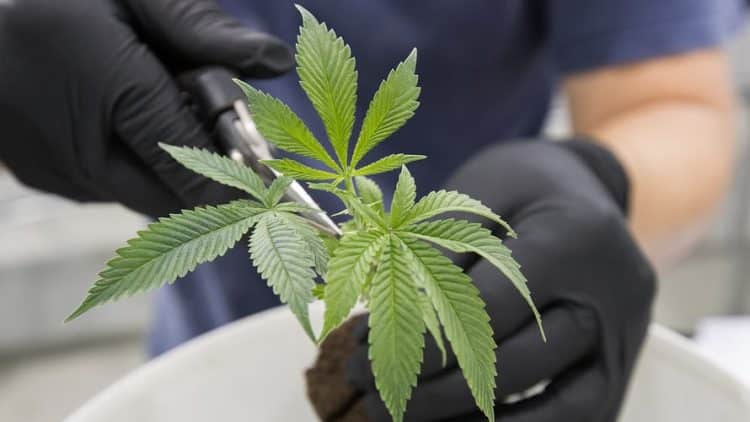FitSmallBusiness.com Ranks the Top States to Own a Cannabis Business in 2019
NEW YORK, Jan. 29, 2019 /PRNewswire/ — So, you want to cash in on the rapidly growing pot industry. With retail sales of cannabis hitting $9.7 billion in 2018 from $6.6 billion the year prior, no wonder so many people get high on the idea. And, that $9.7 billion figure is expected to double by 2022.
But, the laws for cannabis vary dramatically by state – as do taxes, license availability, market demand and, last but not least, community support. So, find out where your pot enterprise will have the most success. That means you’d better do your homework. The research team learned you have to be pretty savvy to master the intricacies. Otherwise, you could end up with metaphorical stems and seeds.
With that in mind, FitSmallBusiness.com, the digital business publication, dug into the data to rank the top states to own a cannabis business in 2019. The publication ranked each state in the country where cannabis is legal to come up with a definitive list, which you can find HERE.
THE TOP 10 STATES FOR OWNING A CANNABIS BUSINESS IN 2019
- Oregon
- Colorado
- Michigan
- Alaska
- California
- Massachusetts
- Washington
- Vermont
- Nevada
- Maine
METHODOLOGY
FitSmallBusiness.com used the following weighted metrics to determine its definitive ranking of the top states to own a cannabis business:
- Legal Environment (30%) – The publication considered states that have legalized medical and/or recreational cannabis, as well as the types of cannabis businesses that are allowed.
- Ease of Market Entry (25%) – Researchers looked at how many licenses are still available to new businesses and whether it is currently possible to apply for a cannabis business license.
- Market Entry Cost (20%) – States have widely varying requirements for application, registration and capital costs. The total for all three can range from $250 to over $1 million. The lower the entry cost, the higher the ranking on the com list.
- Tax Climate (15%) – Each state has a different tax code which affects cannabis businesses. The researchers included sales tax (ranging from 1-10%), and excise tax (ranging from 0-37%). The publication also considered income tax, as some states will tax cannabis sales as income.
- Market Opportunity (10%) – Because it is difficult to determine the potential percentage of cannabis consumers in every state, the publication relied on state population as an indication of market opportunity. The higher the consumer base, the higher the potential sales.
- Researchers also considered the average price per gram, which varies widely from $6/gram to more than $10/gram – all of which impacts profit margins and indicating market saturation.
“There are so many criteria to consider if you’re thinking about launching a cannabis business,” says Eric Noe, Editor-in-Chief, FitSmallBusiness.com. “In a perfect world, you would choose a state where pot is legal, has open applications, low taxes, high sales price, and a booming market. All of that said, everyone should realize that laws change quickly, and legal cannabis is still in the very early stages in the U.S.”
About FitSmallBusiness.com:
With a rapidly growing monthly readership of more than 1.5 million, FitSmallBusiness.com is an online publication devoted to helping small business owners. Its full-time staff of writers spends hours of research, data analysis, and interviews with industry experts to answer the questions that owners want in order to run a successful small business.
For more information on this list and this topic, please contact Sarah Johnson, [email protected], 917-864-6355.
SOURCE FitSmallBusiness.com












